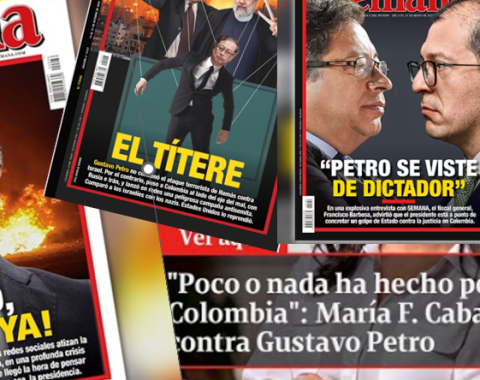It is difficult to even imagine a complete cultural change in Colombia, let alone believe that someday there will be a total cultural change in Colombia, magically turning us into a tolerant, rational country capable of collective compassion, which would benefit us greatly. However, if this much-needed cultural change is to begin in any way, it must come from business and creative leaders who, through their companies, projects, and influence, have the capacity to influence their employees, followers, and collaborators. Therefore, even though it may be uncomfortable for some, it is essential that we start considering the possibility of changing our perspective from the top, or at least increasing the diversity of viewpoints regarding progress.
The fear of change
In Colombia, there exists a traditional, feudal, and upwardly mobile narrative surrounding wealth and property, even if we don’t like to admit it. Many of the great fortunes that exist to this day can be traced back to the times of independence, and in the same way, many of the political and industrial leaders who have shaped Colombia’s current face can be traced back to those times. In the last 3 or 4 decades, there has been an undeniable influence of more or less illegal ways of doing business and politics, driven by various right-wing governments that have normalized the use of exclusionary and intolerant narratives, even shaping the language of Colombia’s wealthier and more influential classes.
That is why, until very recently, it was almost impossible to challenge the monolithic narrative of doing business in Colombia, which still relied on outdated dogmas from the last century such as Trickle Down economics or tax exemptions for large fortunes in order to “create more jobs.” A social environment that was socially sculpted with violent rhetoric where no entrepreneur or professional could dare to differ from the path the country was on.
That is why in business spaces, professional gatherings, or networks like LinkedIn, people feel uncomfortable when dialogues about policies or ideologies that affect the economy and entrepreneurship arise. In such cases, there are two possibilities: those who choose voluntary blindness and prefer to assume that politics has nothing to do with business, or the frontal attack on anyone who dares to think differently.
Overcoming the fear of expressing different opinions
Changing the perspective in a country like Colombia is a complex exercise because to achieve it, we must break with many overwhelming cultural, communicative, and factual influences that are almost impossible to comprehend. This leaves us facing the primary need to change narratives from the root, looking directly at the facts without going through the analyses that mass media do, faithful to their interests, owners, and friends. That’s why it is necessary to engage in intellectual exercises that are detached from what journalists in radio or print media say, as they continue to insist on defending a status quo that conceals corruption and drug trafficking that has corrupted all institutions in Colombia.
This is not a call for uniformity around progressivism, as that would be inappropriate, but it is a celebration that for the first time we can express different opinions. Because it is also very necessary to think differently, to multiply the perspectives of analysis and the possibilities of progress, because as citizens and entrepreneurs, we are not here to defend ideologies but to create individual and hopefully collective wealth.
Daring to Propose
At this crucial point in our history, the challenge is not only to identify the problems but also to dare to propose bold and creative solutions. Colombia is at a turning point where it is clear that the old recipes did not work, and a new vision is needed to address the challenges of the 21st century. It is time for business, creative, and political leaders to step forward with innovative proposals that seek not only economic benefits but also social and environmental well-being.
Proposing involves risks, yes, but it also opens the door to unimaginable opportunities. It is time to experiment with business models that integrate sustainability, equity, and technology, creating a business ecosystem that is both profitable and responsible. We must explore new forms of collaboration between the private sector, government, and civil society, seeking synergies that enhance the country’s overall development.
The reindustrialization of Colombia, for example, should not be just a change in the production structure but also an opportunity to innovate in how we do business, how we treat our employees, and how we contribute to the community. It is an opportunity for companies to become drivers of social change, leading by example and demonstrating that it is possible to thrive while building a fairer and more sustainable society.
At Corinto Insights, we dare to propose and be part of this transformation. We invite others to join us on this journey, sharing ideas, challenging the status quo, and working together towards a future where Colombia not only grows economically but also flourishes as a more equitable and sustainable society. Because, at the end of the day, true progress is measured not only in economic figures but in the quality of life of every Colombian.





